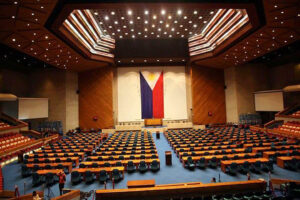
House cautioned against railroading Charter change
By Kenneth Christiane L. Basilio
CONGRESSMEN should treat proposed lifting of foreign ownership limits in the 1987 Constitution as more than a regular bill and avoid railroading the process, according to political analysts.
“If it is debated like a normal bill, then it could mean the House is open to adding more amendment proposals,” Michael Henry Ll. Yusingco, a senior research fellow at the Ateneo de Manila University Policy Center, said in a Facebook Messenger chat. “It could also mean changing the articulation of the current proposals on offer.”
The House of Representatives settled with discussing proposed constitutional amendments like an ordinary bill after a disagreement with the Senate on the manner of voting on the proposals.
“The claim that it will be treated like a normal bill is just meant to dispel any doubts following the sudden development which now sees the two previously warring institutions suddenly working together just to amend the Constitution,” Arjan P. Aguirre, an assistant political science professor at the Ateneo, said via Messenger chat.
The House is amending the Charter using the so-called Bernas formula or through the usual legislative process.
But under the Constitution, there are only three ways to change the Charter — through a constitutional convention made up of delegates, a constituent assembly made up of lawmakers or through a people’s initiative, Hansley A. Juliano, a political science lecturer at the Ateneo, said via Messenger chat. “Insisting on the Bernas formula is not consistent with the text of the Constitution.”
He said treating Charter change (“Cha-cha”) like a regular bill, risks railroading the measure at committee hearings “and then rubber-stamped on second and third reading,” Mr. Juliano said.
“This mostly happens because the representatives involved are already convinced, they want it passed as a law and they don’t want any further comments or technical inputs,” he added.
Mr. Aguirre said the focus on economic provisions is just a ploy, adding that there’s no stopping congressmen from changing political provisions later.
Speaker and Leyte Rep. Ferdinand Martin G. Romualdez earlier said the House would not amend the Constitution’s political provisions.
“Once the process of changing the Constitution is activated, we can expect that the House will suddenly push for the inclusion of political provisions,” he said.
The House seeks to finish plenary debates on Charter change before the Holy Week vacation. Congress will go on a break from March 23 to April 28.
But Mr. Yusingco cautioned lawmakers against rushing approval of Charter change to meet a deadline.
“The process should not be railroaded just to meet a particular timetable,” he said.
Resolution of Both Houses No. 7 seeks to lift ownership limits in public services, education and the advertising industry by adding the phrase “unless otherwise provided by law” in Articles 12, 14, and 16 of the Constitution.



